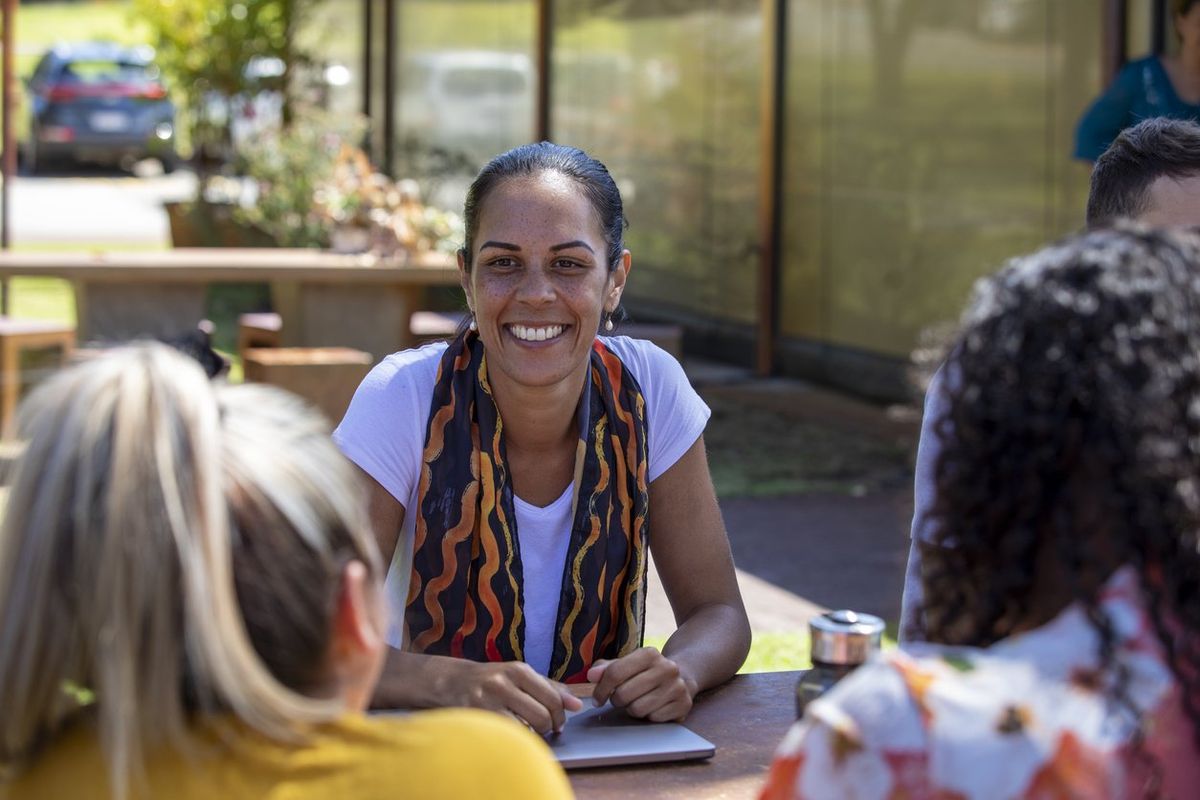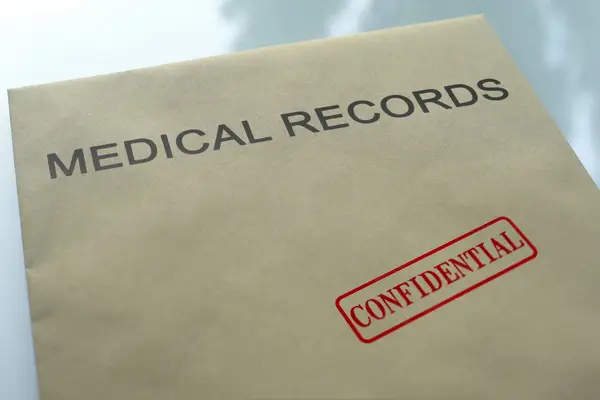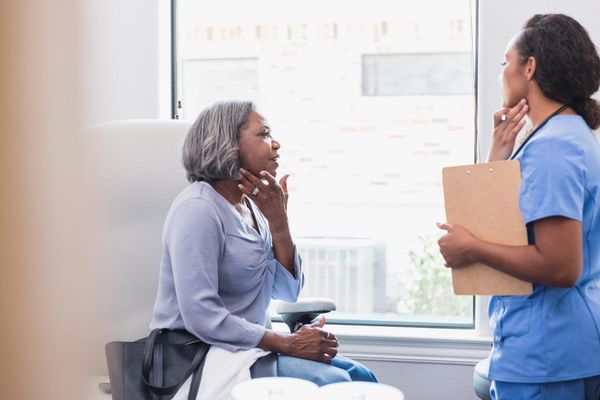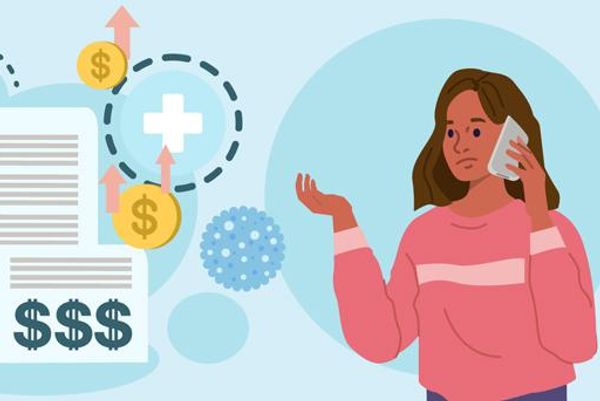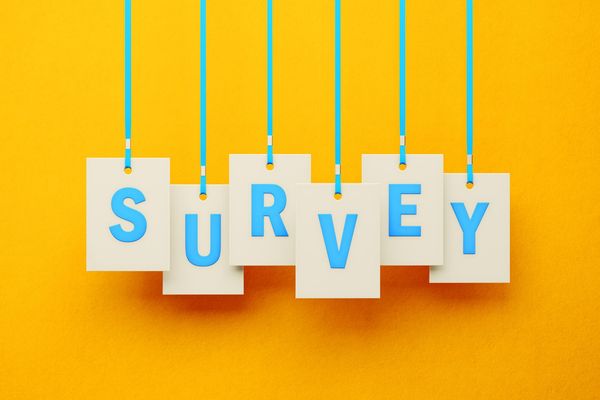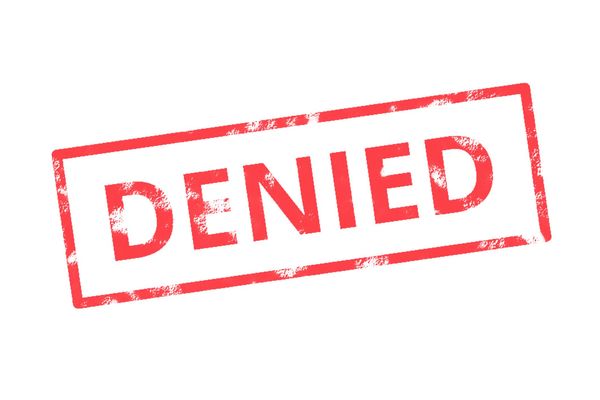When Jamie Collins, a 54-year-old transgender woman from Shreveport, Louisiana, was using drugs and engaging in sexual activity with multiple partners, she knew she was taking risks with her health. So, she wasn’t surprised when she received a diagnosis that she was HIV positive. She had moved to Dallas, Texas, in 2011 and received the news after being admitted to Parkland Hospital to be treated for injuries she received during a physical assault.
Before Collins could fully process the news, a community health worker (CHW) who was also HIV positive was sent to Collins’ bedside from Parkland’s HIV health clinic.
Collins was already familiar with CHWs. One of them visited her during a stint in jail and convinced her to seek treatment for her drug addiction. The CHW at Parkland also turned out to be a valuable source of support.
“That gentleman sat with me, talked to me, went with me to get my lab work, and even sat in on my doctor visits to make sure everything went okay,” said Collins. The CHW also helped Collins find affordable housing and vouchers for public transportation and connected her to other health and social services.
More than a decade after receiving her HIV diagnosis, Collins still hears from her CHW even though he no longer works at the clinic. She counts him as an unconditional friend and he’s one of the reasons she currently volunteers as a community health advocate.
“They were so compassionate,” Collins said about her CHWs. “Even though I am a strong person, I had my moments of doubt and fear about my situation. Without their help, I know that my health would not be as good as it is.”
What are community health workers?
CHWs have been called ambassadors of public health, and they play important roles in the lives of people who need medical support. In fact, the World Health Organization has praised them as being among the most important providers of public health care globally.
A large part of the CHWs’ influence comes from their close connection with urban and rural communities and in being able to link medical systems to vulnerable and historically marginalized populations in need of healthcare. CHWs work as volunteers or paid staff and their titles vary, depending on their health and social service affiliations. They’re also known as peer advisors, promotoras, community health aides, health coaches and outreach workers, Growing numbers of CHWs hold degrees and formal certifications in the practice. Many others count the strong bonds and ability to maintain culturally appropriate relationships with their communities as valid credentials.
CHWs provide a variety of health and educational services, including drug abuse intervention, nutrition, vaccinations, infectious disease counseling, child and reproductive healthcare, and follow-up support.
Having a trusted CHW as an advocate often helps ensure that patients needing medical help have an easier and less intimidating experience. Their advocacy often makes the difference between whether a patient continues receiving the treatment they need or drops out of the system altogether, said Helen Limbani, a public health worker of 30 years.
“Health workers become like family,” said Limbani, who currently serves as case manager for The Afiya Center, which provides reproductive services for Black and brown women in the Dallas area. Limbani entered the field as a volunteer at hospitals and clinics before being hired to do the same work. “We are not doctors, so we are less threatening to individuals,” Limbani said. “Degrees are good, but in this work, it is still important to be a person with passion.”
Historical origins of community health workers
The concept of using non-physicians to provide healthcare dates back as far as 1650 when some German military personnel were trained to be medical assistants or feldshers and were later introduced by Peter the Great to treat the Russian military. Since that time, the concept has expanded and evolved, and inspired community health programs around the world.Notably, CHWs played a pivotal role during the outbreak of Covid-19 that overwhelmed the healthcare system. They served as a pipeline that provided access to services that would help mitigate the harmful impact caused by the pandemic. Recognizing their importance, the Centers for Disease Control and Prevention (CDC) established Community Health Workers for COVID Response and Resilient Communities, an initiative that provided financial support and technical assistance to bolster their service efforts.
Their growing numbers respond to growing need
The need for CHWs in the United States appears to show no signs of slowing down. The federal Bureau of Labor Statistics reports an estimated 61,010 workers nationwide are employed as CHWs and that doesn’t include the countless others who are unpaid volunteers.
Alex Fajardo is a CHW who's been in the field for decades. At the El Sol Neighborhood Educational Center, which serves populations in the inland and coastal communities of San Bernardino and Southern California, there were only three CHW volunteers or promotoras on the team when he was asked to join them 20 years ago. They wanted him to continue what he was already doing — serving as an interpreter, assisting seniors with transportation and working to prevent youth violence in his neighborhood. Now, as executive director of that same agency, Fajardo oversees a staff of 150 mostly bilingual laypeople who are trained to serve more than 50,000 community residents in their area.
Promotoras are community health workers who provide services in Spanish-speaking communities.
Fajardo appreciates that there are more opportunities for CHWs to provide service, but he’s concerned about how their grassroots identities will be impacted by the increased involvement of medical and government institutions seeking to employ them. Traditional CHWs are now faced with vying for jobs with those who carry formal certifications and college degrees but may have limited real experience in understanding the needs of the people they will be serving.
Fajardo recommends having candid and ongoing discussions between community health providers and medical system representatives on how to improve CHW programs without diminishing the essence of their roles and putting them in positions of being enforcers for the institutions they work for instead of advocates for the people they are trained to serve.
“This is about relationships,” Fajardo said. “We can’t lose our identity of being loyal to the people or representing the voice of the community. This is super important because the communities are where we belong.”

